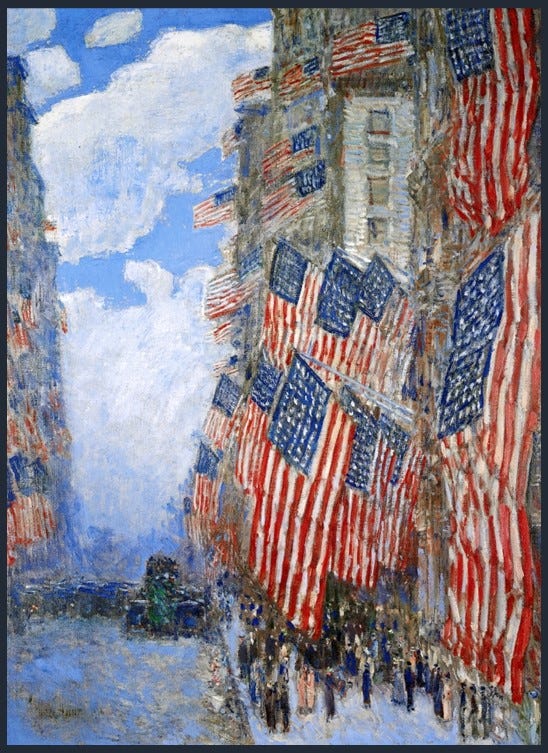For the Love of Country
C.C. Pecknold reflects on the resurgence of American patriotism, the flag, fireworks, and the goodness of the nation which is worthy of our affection and celebration.
Frederick Childe’s “Fourth of July 1916”
In my neighborhood, we’ve been hearing fireworks for days. I love it. I don’t even need to see them. Just hearing them go off is comforting. A few neighborhoods over, the City of Alexandria has banned fireworks entirely. The mayor prefers the colors of the rainbow to the dawn’s early light, and he would rather sig…



